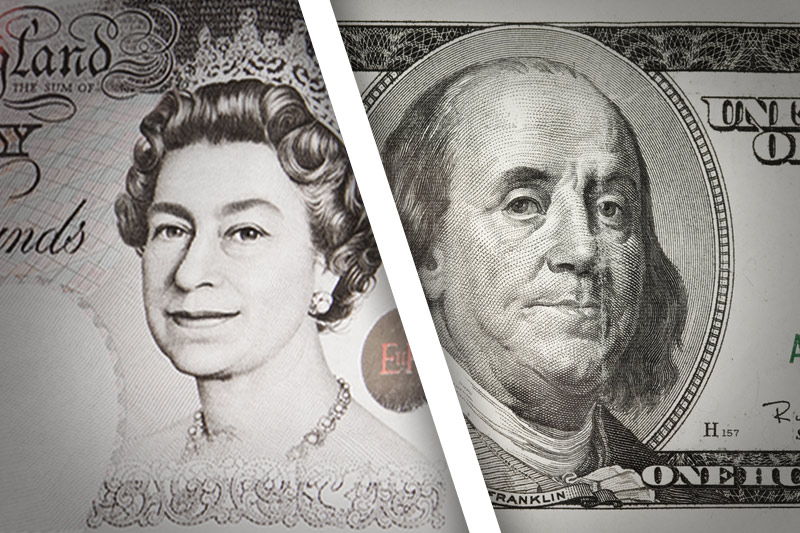Investing.com - The pound weakened against the dollar on Wednesday after news broke that U.S. President Barack Obama named Federal Reserve Vice Chair Janet Yellen to replace Ben Bernanke as head of the U.S. central bank.
Soft U.K. output data pushed the pair down as well.
In U.S. trading on Wednesday, GBP/USD was trading at 1.5960, down 0.77%, up from a session low of 1.5917 and off from a high of 1.6122.
Cable was likely to find support at 1.5885, Sept. 17, and resistance at 1.6124, Tuesday's high.
U.S. President Barack Obama is due to announce his decision to name Janet Yellen as the new head of the Federal Reserve shortly.
Yellen's nomination sparked relief buying for the dollar despite her being a noted policy dove and seen as sticking with currently loose monetary policies, as she will likely win confirmation in the Senate and ensure a smooth transition of leadership in the U.S. central bank.
Yellen was seen competing for the job against former Treasury Secretary Larry Summers, who bowed out of the race last month, and her nomination clears up policy uncertainty, which gave the dollar room to rise despite expectations for overall monetary policy to remain on the loose side.
Bernanke is due to step down Jan. 31.
Elsewhere, investors still remained cautious as a U.S. government shutdown continued into a second week, with few signs of a breakthrough ahead of an Oct. 17 deadline to raise the limit on federal debt borrowing and avoid a default sometime afterwards.
President Obama as insisted that he will only enter negotiations with congressional Republicans after the government is reopened and the U.S. debt ceiling is raised without conditions.
Across the Atlantic, data showed that U.K. industrial production fell at the fastest rate in nearly a year in August, raising doubts over the outlook for third quarter growth.
The Office for National Statistics said U.K. industrial production fell 1.1% in August, defying expectations for a 0.4% increase after inching up 0.1% in July.
The ONS said manufacturing production fell by a seasonally adjusted 1.2% in August, confounding expectations for a 0.4% increase.
A separate report showed that the U.K.’s goods trade deficit narrowed to GBP9.63 billion in August from GBP9.94 billion in July, but analysts had expected the deficit to shrink to GBP9 billion.
The pound, meanwhile, was down against the euro and down against the yen, with EUR/GBP up 0.40% at 0.8473 and GBP/JPY down 0.26% at 155.40.
On Thursday, the Bank of England is due to announce its benchmark interest rate.
Soft U.K. output data pushed the pair down as well.
In U.S. trading on Wednesday, GBP/USD was trading at 1.5960, down 0.77%, up from a session low of 1.5917 and off from a high of 1.6122.
Cable was likely to find support at 1.5885, Sept. 17, and resistance at 1.6124, Tuesday's high.
U.S. President Barack Obama is due to announce his decision to name Janet Yellen as the new head of the Federal Reserve shortly.
Yellen's nomination sparked relief buying for the dollar despite her being a noted policy dove and seen as sticking with currently loose monetary policies, as she will likely win confirmation in the Senate and ensure a smooth transition of leadership in the U.S. central bank.
Yellen was seen competing for the job against former Treasury Secretary Larry Summers, who bowed out of the race last month, and her nomination clears up policy uncertainty, which gave the dollar room to rise despite expectations for overall monetary policy to remain on the loose side.
Bernanke is due to step down Jan. 31.
Elsewhere, investors still remained cautious as a U.S. government shutdown continued into a second week, with few signs of a breakthrough ahead of an Oct. 17 deadline to raise the limit on federal debt borrowing and avoid a default sometime afterwards.
President Obama as insisted that he will only enter negotiations with congressional Republicans after the government is reopened and the U.S. debt ceiling is raised without conditions.
Across the Atlantic, data showed that U.K. industrial production fell at the fastest rate in nearly a year in August, raising doubts over the outlook for third quarter growth.
The Office for National Statistics said U.K. industrial production fell 1.1% in August, defying expectations for a 0.4% increase after inching up 0.1% in July.
The ONS said manufacturing production fell by a seasonally adjusted 1.2% in August, confounding expectations for a 0.4% increase.
A separate report showed that the U.K.’s goods trade deficit narrowed to GBP9.63 billion in August from GBP9.94 billion in July, but analysts had expected the deficit to shrink to GBP9 billion.
The pound, meanwhile, was down against the euro and down against the yen, with EUR/GBP up 0.40% at 0.8473 and GBP/JPY down 0.26% at 155.40.
On Thursday, the Bank of England is due to announce its benchmark interest rate.
